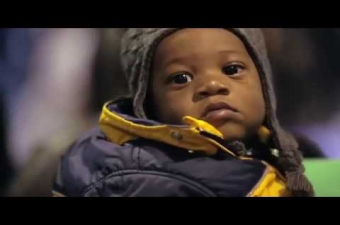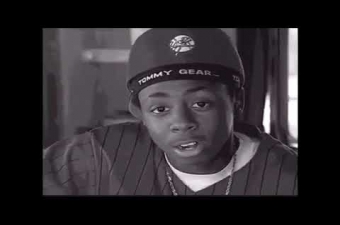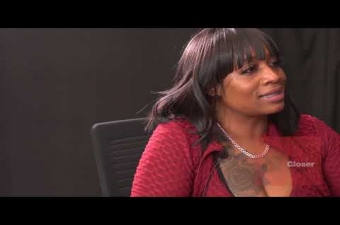Cash Money Records Office
1100 Tulane AvenueNew Orleans LA 70122
Cash Money Records, the most successful record label in New Orleans’ history and an international force in hip-hop, broke into the big time from an office on the fifth floor of what was then known as the Oil & Gas Building.
Brothers Bryan “Baby” Williams (later called Birdman) and Ronald “Slim” Williams started Cash Money around 1991 with Baby’s hand-drawn dollar sign logo and a business sense shaped by their experiences on the streets. At the time, Cash Money was one of several local, independent outfits trying to capitalize on New Orleans’ burgeoning hip-hop scene, newly energized by the emergence of bounce.
Setting up shop in the Central Business District, shoulder to shoulder with the city’s white collar establishment, was an early sign of the Williams’ ambition. According to the artist Ms. Tee, the first woman signed to the label, Baby hung a framed photo of a million dollars in cash on the wall and announced his intention to become a millionaire.
Shortly after renting the office in 1993, Baby and Slim made two moves that would help them realize that goal hundreds of times over. First, they connected with DJ Mannie Fresh at Club Rumors, eventually persuading him to become their in-house producer (he did a few early recording sessions in the office).
Second, they heard something in an 11-year-old Lil Wayne, as Wayne recalled: “I spit for Baby, and he gave me a card—I ain’t never stop calling the number on that motherfucker.” Baby eventually invited him to Cash Money headquarters: “Mind you the office wasn’t nothing but like three little rooms…I sat in that office every day and wrote raps till they said, ‘Now here’s the microphone, and here’s the beat.’”
That was in 1994, when the label was anchored by U.N.L.V., a trio that delivered gangsta raps over bounce-inflected beats. Then, in 1995 and 1996, the Williams brothers took a calculated risk, purging all of their artists except for Lil Wayne and BG, then 14 and 16 years old, and starting over. Slim said later that the rest of the roster “wasn’t hungry enough” for the label to break nationally.
The second phase of Cash Money Records
On their way out of the office one evening, Slim, Baby, and Fresh ran into another star to build around: Juvenile was waiting for a bus on Canal Street, and they gave him a ride home. Fresh recalled giving him subjects to rap about, and Juvenile freestyling all the way uptown: “It was mind blowing.” The admiration went both ways: Juvenile loved Fresh’s beats, especially the one on U.N.L.V.’s “Drag ‘Em ‘N’ Tha River.” Still, he only agreed to sign with Cash Money after Baby guaranteed him $2,000 a week to make it worth leaving his day job in the oil and gas industry.
Juvenile joined BG, Lil Wayne, and Turk in the Hot Boys, Cash Money’s new flagship act. Meanwhile, Fresh’s evolution as a producer gave their releases a signature sound, with melodic synth lines and live instruments playing over danceable beats. Along with the Big Tymers, Fresh and Baby’s duo, the new-look label sold tens of thousands of copies of their records with distribution concentrated in the South.
Their success breaking into new regions in 1997 gave the Williams brothers leverage to secure a landmark $30 million deal with Universal Records in 1998, which opened up national distribution while letting them retain ownership of their master recordings. After that, they followed other successful New Orleanians and moved their operation to suburban Metairie, where they could park their new Bentleys and play their music as loud as they pleased.
While Cash Money’s success was a remarkable rags-to-riches triumph by the Williams brothers, Mannie Fresh and nearly every artist they signed in the 90s–before and after the roster purge–claimed they were shortchanged by the label. Several reached settlements after taking legal action, and most eventually reconciled, citing the youth and inexperience of all involved.
In any case, Cash Money would grow into a global powerhouse thanks to Lil Wayne’s skyrocketing solo career and the signing of superstars-to-be Drake and Nicki Minaj in 2009.
Club Ampersand
In 2000, not long after Cash Money moved out, a nightclub called Ampersand moved into the first floor of the Oil & Gas Building. The Times-Picayune’s Chris Rose reported that “Industrial Goth rocker Trent Reznor,” then a New Orleans resident, “showed up opening week and pronounced it ‘cool.’”
Shortly thereafter, according to Rose, Popeyes Chicken founder Al Copeland’s combined bachelor/bachelorette party, “a jumble of faux-leopard prints and sparkly shirts,” was turned away at the door: “Proprietors of the velvet-roped dance club — our own new Studio 54 — were horrified at the suburban onslaught and the ropes snapped shut. This is not who Ampersand is for, it was explained.”
It was for the young and trendy, as well as celebrities like erstwhile New Orleanian Nicolas Cage. The music came mostly from DJs, local and touring, and electronic acts like the Crystal Method. The club also hosted a Super Bowl afterparty with noted Lil Wayne collaborator 2Chainz before shutting down in 2014.
History of the Oil & Gas Building
In the early 20th century the corner of South Rampart and Tulane was the heart of New Orleans’ first Chinatown, as geographer Richard Campanella writes, with markets selling everything from tea to “silk kimonos and mandarin coats popular with Uptown debutantes.”
Jelly Roll Morton recalled being sent here to buy opium for sex workers in Storyville (a scenario that would not be out of place on a Cash Money record). Louis Armstrong, who grew up a few blocks away, came here to eat with his family on special occasions.
The city bulldozed Armstrong’s childhood home and other nearby jazz landmarks in the 1950s to build a civic center, and to encourage the construction of office towers like the Oil & Gas Building. Its opening in 1960 marked the growth of the city’s modern Central Business District on what had been the South Rampart Street neighborhood of Armstrong’s day.
The building’s lobby featured a stylized sculpture of a 10-foot man harnessing a ball of energy, an aspirational symbol of the postwar economy. The state’s oil industry went bust in 1986, though, and the ensuing downturn left office space available for the Williams brothers. (In 2010, after hitting it big, Baby and Slim founded an oil company of their own, but it folded after losing millions to a con man—Baby has since covered the pumpjack tattoo on his head.)
The Oil & Gas Building was added to the National Register of Historic Places in 2014, but not because it was Cash Money’s launching pad: it qualified on architectural grounds, as a mid-century skyscraper with a unique glass, steel, and marble design presenting “an elegant and supremely modern vision of abstract sculpture — a rhythm of articulated elevations that follow the open end of the [building’s] L configuration.”
The building’s landmark status helped developers tap historic tax credits to renovate it as a hotel. Today, if you get a room on the fifth floor, you can drink champagne on the spot where Lil Wayne wrote his first songs, hoping to get behind the mic.
Videos

"Birdman Before Anythang: The Cash Money Story" is Cash. Money Records' co-founder's 75-minute recounting of his coming of age.
Video posted by MT Prxphet.
"Birdman Before Anythang: The Cash Money Story" is Cash. Money Records' co-founder's 75-minute recounting of his coming of age.

"Ball Till You Fall," a 37-minute documentary from ca. 1997 following the Cash Money Millionaires to Freaknik, the Pen & Pixel offices, and a concert at the Superdome.
Video posted by DatWAV.
"Ball Till You Fall," a 37-minute documentary from ca. 1997 following the Cash Money Millionaires to Freaknik, the Pen & Pixel offices, and a concert at the Superdome.

Ms. Tee, the first woman signed to Cash Money Records, in conversation with A Closer Walk editor Jordan Hirsch.
Video by A Closer Walk.
Ms. Tee, the first woman signed to Cash Money Records, in conversation with A Closer Walk editor Jordan Hirsch.
Images



















